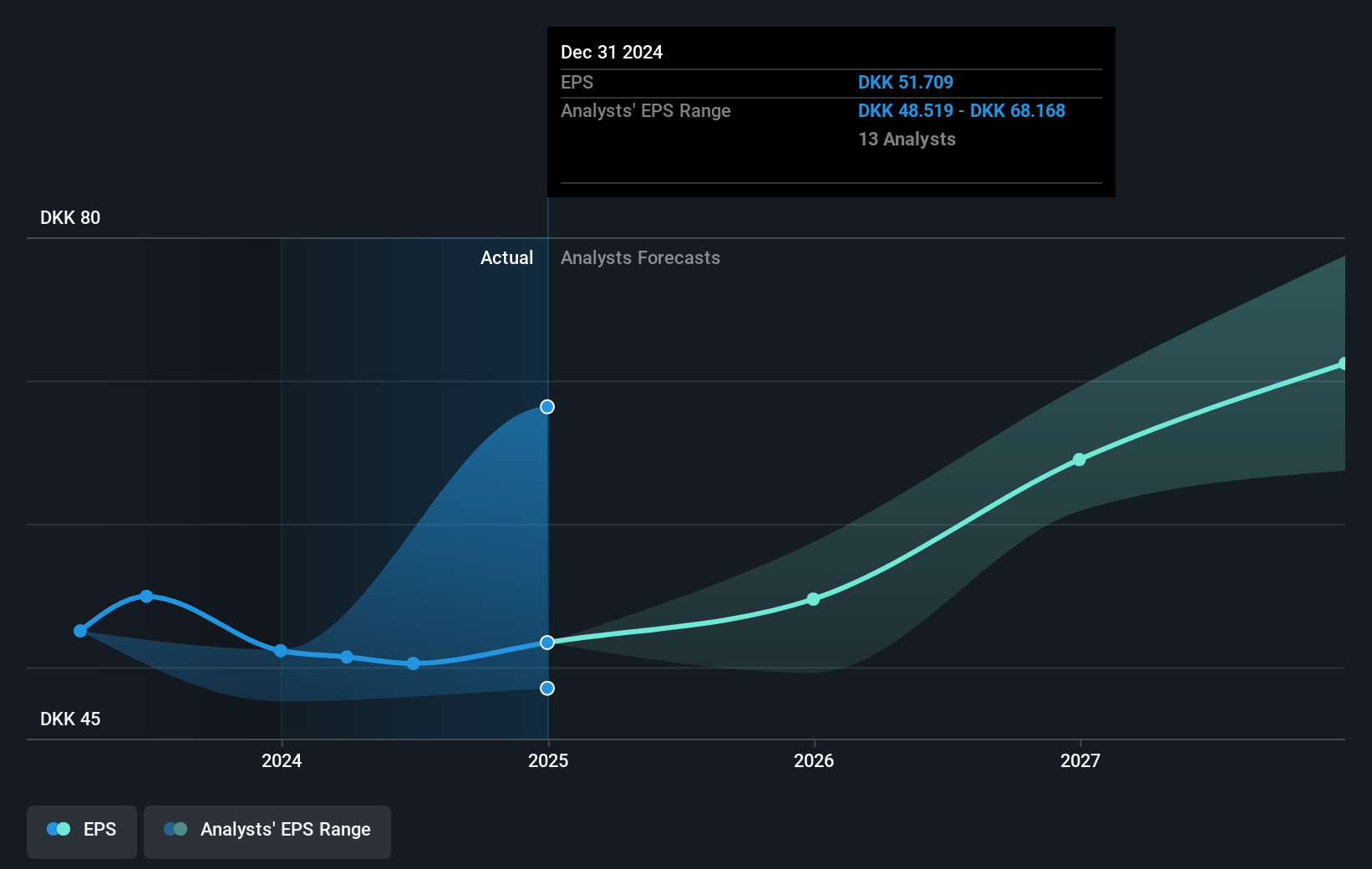0.5% earnings growth over 3 years has not materialized into gains for Carlsberg (CPH:CARL B) shareholders over that period

Investors are understandably disappointed when a stock they own declines in value. But when the market is down, you're bound to have some losers. While the Carlsberg A/S (CPH:CARL B) share price is down 12% in the last three years, the total return to shareholders (which includes dividends) was -4.0%. And that total return actually beats the market decline of 7.2%. Furthermore, it's down 10% in about a quarter. That's not much fun for holders. But this could be related to the weak market, which is down 13% in the same period.
After losing 3.4% this past week, it's worth investigating the company's fundamentals to see what we can infer from past performance.
In his essay The Superinvestors of Graham-and-Doddsville Warren Buffett described how share prices do not always rationally reflect the value of a business. One imperfect but simple way to consider how the market perception of a company has shifted is to compare the change in the earnings per share (EPS) with the share price movement.
Although the share price is down over three years, Carlsberg actually managed to grow EPS by 1.6% per year in that time. This is quite a puzzle, and suggests there might be something temporarily buoying the share price. Alternatively, growth expectations may have been unreasonable in the past.
With EPS gaining and a declining share price, one would suggest the market is cooling on its view of the company. Of course, this could spell opportunity because if the EPS growth continues long term, it seems very likely the share price will rise too.
The graphic below depicts how EPS has changed over time (unveil the exact values by clicking on the image).

We like that insiders have been buying shares in the last twelve months. Even so, future earnings will be far more important to whether current shareholders make money. This free interactive report on Carlsberg's earnings, revenue and cash flow is a great place to start, if you want to investigate the stock further.
What About Dividends?
When looking at investment returns, it is important to consider the difference between total shareholder return (TSR) and share price return. Whereas the share price return only reflects the change in the share price, the TSR includes the value of dividends (assuming they were reinvested) and the benefit of any discounted capital raising or spin-off. Arguably, the TSR gives a more comprehensive picture of the return generated by a stock. As it happens, Carlsberg's TSR for the last 3 years was -4.0%, which exceeds the share price return mentioned earlier. This is largely a result of its dividend payments!
A Different Perspective
It's good to see that Carlsberg has rewarded shareholders with a total shareholder return of 4.3% in the last twelve months. And that does include the dividend. That's better than the annualised return of 0.9% over half a decade, implying that the company is doing better recently. Given the share price momentum remains strong, it might be worth taking a closer look at the stock, lest you miss an opportunity. I find it very interesting to look at share price over the long term as a proxy for business performance. But to truly gain insight, we need to consider other information, too. Even so, be aware that Carlsberg is showing 1 warning sign in our investment analysis , you should know about...
Carlsberg is not the only stock that insiders are buying. For those who like to find lesser know companies this free list of growing companies with recent insider purchasing, could be just the ticket.
Please note, the market returns quoted in this article reflect the market weighted average returns of stocks that currently trade on Danish exchanges.
New: AI Stock Screener & Alerts
Our new AI Stock Screener scans the market every day to uncover opportunities.
• Dividend Powerhouses (3%+ Yield)
• Undervalued Small Caps with Insider Buying
• High growth Tech and AI Companies
Or build your own from over 50 metrics.
Have feedback on this article? Concerned about the content? Get in touch with us directly. Alternatively, email editorial-team (at) simplywallst.com.
This article by Simply Wall St is general in nature. We provide commentary based on historical data and analyst forecasts only using an unbiased methodology and our articles are not intended to be financial advice. It does not constitute a recommendation to buy or sell any stock, and does not take account of your objectives, or your financial situation. We aim to bring you long-term focused analysis driven by fundamental data. Note that our analysis may not factor in the latest price-sensitive company announcements or qualitative material. Simply Wall St has no position in any stocks mentioned.
About CPSE:CARL B
Carlsberg
Produces and markets beer and other beverage products in Denmark, China, the United Kingdom, and internationally.
Established dividend payer and good value.
Similar Companies
Market Insights
Community Narratives




